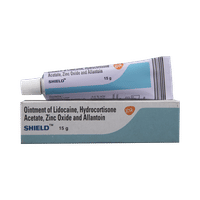Rs.94.70for 1 strip(s) (10 tablets each)
Available in other variants
food interaction for Amtas-E
alcohol interaction for Amtas-E
pregnancy interaction for Amtas-E
lactation interaction for Amtas-E
food
alcohol
pregnancy
lactation
Amtas-E 5mg/5mg Tablet may be taken with or without food.
None
None
CAUTION
Alcohol should be used with caution while taking Amtas-E 5mg/5mg Tablet.
CAUTION
Amtas-E 5mg/5mg Tablet is highly unsafe during pregnancy. It can cause serious harm to the unborn baby, including birth defects and pregnancy loss. Do not use this medicine if you are pregnant or planning to become pregnant.
UNSAFE
Amtas-E 5mg/5mg Tablet may be unsafe to use during breastfeeding. Limited human data suggests that the drug may pass into the breastmilk and harm the baby. It should be used only if the expected benefit outweighs the potential risk. Please consult your doctor.
CONSULT YOUR DOCTOR
SALT INFORMATION FOR Amtas-E
Amlodipine(5mg)
Uses
Amlodipine is used in the treatment of Angina (heart-related chest pain), Hypertension (high blood pressure), Arrhythmia, hypertensive emergency, subarachnoid haemorrhage and anal fissure.
How it works
Amlodipine is a calcium channel blocker. In high blood pressure, it normalizes the blood pressure by relaxing the blood vessels to reduce the pressure on them, thereby improving the blood flow in the body. The enhanced blood flow in the body, further relaxes the heart muscles by reducing the workload on the heart. It also improves the oxygen flow in the body, thereby, preventing any heart-related chest pain.
Common side effects
Headache, Nausea, Abdominal pain, Flushing (sense of warmth in the face, ears, neck and trunk), Dizziness, Palpitations, Edema (swelling), Hypotension (low blood pressure), Chest pain, Fainting, Muscle cramp, Visual disturbance, Shortness of breath, Change in bowel habits, Weakness, Insomnia (difficulty in sleeping), Mood changes, Depression, Tremors, Taste change, Hypoesthesia (decreased sensitivity to stimuli), Paresthesia (tingling or pricking sensation), Arrhythmia (irregular heartbeats), Vomiting, Dryness in mouth, Rash, Muscle pain, Back pain, Frequent urge to urinate, Impotence, Breast enlargement in male, Decreased white blood cell count (lymphocytes), Low blood platelets, Allergic reaction, Increased glucose level in blood, Confusion, Hypertonia (increased muscle tone), Pancreatic inflammation, Gingival hyperplasia, Hepatitis (viral infection of liver), Angioedema (swelling of deeper layers of skin), Stevens-Johnson syndrome
Enalapril(5mg)
Uses
Enalapril is used in the treatment of Hypertension (high blood pressure), prevention of heart attack and stroke and Heart Failure.
How it works
Enalapril is an angiotensin converting enzyme (ACE) inhibitor. It works by reducing stress on the heart and relaxing blood vessel so that blood flows more smoothly and the heart can pump blood more efficiently.
Common side effects
Cough, Dizziness, Fatigue, Increased potassium level in blood, Hypotension (low blood pressure), Blurred vision, Headache, Muscle cramp, Paresthesia (tingling or pricking sensation), Liver dysfunction, Anaphylactic reaction, Decreased white blood cell count (neutrophils), Agranulocytosis (deficiency of granulocytes in the blood), Angioedema (swelling of deeper layers of skin)
SUBSTITUTES FOR Amtas-E
8 Substitutes
8 Substitutes
Sorted By
 Rs. 92.81save 2% more per Tablet
Rs. 92.81save 2% more per Tablet Rs. 42.19save 71% more per Tablet
Rs. 42.19save 71% more per Tablet Rs. 24.38save 75% more per Tablet
Rs. 24.38save 75% more per Tablet Rs. 36.56save 62% more per Tablet
Rs. 36.56save 62% more per Tablet Rs. 29.06save 70% more per Tablet
Rs. 29.06save 70% more per Tablet
Expert advice FOR Amtas-E
- You have been prescribed Amlodipine to improve your blood pressure and/or to reduce the number and severity of angina attacks.
- Lowering blood pressure reduces the chance of future heart attack and stroke.
- Take it at the same time every day to help you remember to take it.
- A sudden drop in your blood pressure may occur, especially when you first start taking Amlodipine. To lower the chance of feeling dizzy or passing out, rise slowly if you have been sitting or lying down.
- It can cause ankle or foot swelling. To reduce the swelling, raise your legs while you are sitting down. Talk to your doctor if it does not go away.
- It may cause dizziness. Do not drive or perform any activity that requires mental focus until you know how Amlodipine affects you.
- Inform your doctor if you are pregnant, planning a pregnancy or breastfeeding.
- You have been prescribed Amlodipine to improve your blood pressure and/or to reduce the number and severity of angina attacks.
- Lowering blood pressure reduces the chance of future heart attack and stroke.
- Take it at the same time every day to help you remember to take it.
- A sudden drop in your blood pressure may occur, especially when you first start taking Amlodipine. To lower the chance of feeling dizzy or passing out, rise slowly if you have been sitting or lying down.
- It can cause ankle or foot swelling. To reduce the swelling, raise your legs while you are sitting down. Talk to your doctor if it does not go away.
- It may cause dizziness. Do not drive or perform any activity that requires mental focus until you know how Amlodipine affects you.
- Inform your doctor if you are pregnant, planning a pregnancy or breastfeeding.
Frequently asked questions FOR Amtas-E
Amlodipine
Q. How long does it take for Amlodipine to work?
Amlodipine starts working on the day it is taken. However, it may take weeks to see the full effect. You should continue taking the medicine even if you feel better or if you do not notice any considerable difference. Consult your doctor if you have any concerns or you feel worse after taking the medicine.
Q. Does Amlodipine cause itching?
Amlodipine may cause itching in some patients, though it is an uncommon side effect. However, if you experience severe itching contact your doctor.
Q. Is Amlodipine bad for the kidneys?
No, there is no evidence that Amlodipine causes deterioration of kidney problems. Amlodipine can be used in normal doses in patients with kidney problems. In fact, its blood pressure-lowering effect, it helps to prevent injury to the kidneys due to hypertension.
Enalapril
Q. What is Enalapril? What is it used for?
Enalapril belongs to a group of medicines known as angiotensin-converting enzyme (ACE) inhibitors. It relaxes and widens the blood vessels, making it easier for the blood to pass through the vessels. As a result of this, the heart does not have to work more to push the blood. Since the workload on the heart is reduced, it helps to lower the blood pressure and thus reduces the risk of heart attack and stroke. It is also used for the treatment and prevention of congestive heart failure.
Q. Does Enalapril cause excessive urination? Can it cause kidney damage?
No, Enalapril does not cause excessive urination (loss of water through urine). The use of Enalapril may not affect normally functioning kidneys. However, damage to the kidneys may occur when Enalapril is given with a diuretic (water pill, a medicine that increases the urine output). In such a case, either the diuretic should be discontinued or its dose should be reduced. If you have severe heart failure or your kidneys are already affected then there is a risk of kidney failure. However, timely and appropriate treatment can reverse the damage caused to kidneys.
Q. Can use of Enalapril affect my liver?
In rare cases, Enalapril may cause yellowing of skin and eyes, loss of appetite and an increase in liver enzymes. It can also cause considerable damage to the liver and even death. Therefore, if you experience any such symptoms, call your doctor immediately.























